There were fireworks that morning on the Boulevard Malesherbes. The secretary's face expressed absolute non-resistance to evil. Visitors came out of the walnut doors with distorted faces. "Mr. Rolling is in a bad mood today," they reported in a whisper. Exactly at one o'clock Mr. Rolling glanced at the clock and broke a pencil. It was clear that Zoe Montrose would not call for him to go to lunch. He waited until a quarter past one. During that terrible quarter of an hour two grey hairs appeared on the secretary's impeccable parting. Rolling went to lunch at Griffon's, alone.
The restaurateur, M'sieur Griffon, a tall, stoutish man, formerly a cook and owner of a bar, now chief consultant on the Grand Degustatory and Digestive Arts, met Rolling with an heroic wave of the hand. In a dark-grey frock-coat, with an immaculate Assyrian beard and a noble forehead, M'sieur Griffon stood in the middle of the small hall of his restaurant, resting one hand on what was almost an altar, the silver pedestal of special design on which his famous roast—saddle of mutton with haricot beans—was braising under a domed dish-cover.
The habituÉs of the restaurant sat on red leather couches placed along the four walls behind long narrow tables; they were mostly businessmen from the Grands Boulevards, and a few women. Except for the altar, the middle of the room was empty. Turning his head, the restaurateur could observe the process of degustation in each of his clients. Not the slightest grimace of dissatisfaction escaped him. Furthermore—he anticipated much: the mysterious process of the secretion of juices, the helical workings of the stomach and the whole psychology of eating based on memories of something eaten some time before and on the flow of blood to various parts of the body—all this was an open book to Monsieur Griffon.
With a severe and at the same time fatherly expression he would walk over to a client and say to him with charmingly gruff tenderness, "Your temperament today, M'sieur, demands a glass of Madeira and a little Pouilly, tres sec— you may send me to the guillotine but I won't give you a single drop of vin rouge. Oysters, a little boiled turbot, the wing of a chicken and a few stalks of asparagus. That collation will give you back your strength." Only a Patagonian, used to a diet of water rats, could object under such circumstances.
M'sieur Griffon did not run with servile haste to the Chemical King's table as might have been expected. Here, in the Academy of Degustation, the multimillionaire and the bookkeeper, the man who thrust his wet umbrella to the porter and the man who stepped importantly out of a Rolls Royce smelling of Havana cigars—all paid the same bill. M'sieur Griffon was a republican and a philosopher. With a benign smile he handed Rolling the menu and advised him to begin with honey-dew melon, and follow it by lobster baked with truffles and saddle of mutton. Mr. Rolling did not drink wine during the day, he knew that.
"Give me a whiskey and soda and put a bottle of champagne in ice," said Rolling through his clenched teeth.
M'sieur Griffon stepped back and for a moment astonishment, fear, and disgust flashed up in his eyes: a client was beginning with whiskey, that dulled the palate, and wanted to continue with champagne, that bloated the stomach. M'sieur Griffon's eyes grew dull, he bowed his head respectfully, his client was lost for today, he could only reconcile himself to that undoubted fact.
After his third whiskey Mr. Rolling began to crush his napkin. A man with such a temperament but standing at the other end of the social ladder, Gaston Bee de Canard, for example, would have found Zoe Montrose before sundown—the bitch, the filthy hussy picked up out of the gutter—and would have sunk the blade of a clasp-knife deep into her side. Different methods were more becoming to Rolling. As he looked at the plate on which the lobster was growing cold he was not thinking of battering the nose of the harlot who had fled from his bed during the night.
The most refined and morbid ideas of revenge emerged from the yellow whiskey fumes, blended and grew in Rolling's brain. It was only now that he realized what beautiful Zoe had meant to him. In his torment he dug his finger-nails into the napkin.
The waiter removed the untouched food and poured out champagne. Rolling seized the glass and drank down the contents thirstily, his gold teeth chattering against the edge of the glass. At that moment Semyonov rushed into the restaurant from the street. Seeing Rolling he pulled off his hat, leaned across the table, and whispered to him:
"Have you seen the newspapers? I've just come from the morgue. It's him. We know nothing about it. I could swear it under oath. We have an alibi. We spent the whole night on Montmartre with the girls. It has been established that the murder took place between three and four in the morning, I got it from the newspapers, the newspapers..."
An earthy, twisted face jumped up and down before Rolling's eyes. His neighbours turned to look at them. A waiter approached with a chair for Semyonov.
"Go to hell," said Rolling through a curtain of whiskey, "you're disturbing my lunch."
"All right, excuse me, I'll wait for you in the car at the corner."
All those days there had been nothing of importance in the Paris newspapers, everything was as calm as a forest lake. The bourgeois yawned as they read leading articles on literary subjects, feuilletons about theatre shows, and stories from the lives of artistes.
This untrammelled calm of the press was preparing the way for a hurricane attack on the purse of the petit bourgeois. Chemical King Rolling's organization had been set up, petty competitors had been crushed, and he was about to launch a campaign to raise prices. The press had been bought, the journalists had been armed with the necessary information on the chemical industry. Really staggering documents had been prepared for leading articles on political themes. A couple of faces slapped and a couple of duels had got rid of the fools who had said something that ran counter to the general line of the cartel.
Peace and repose reigned in Paris, the sales of the dailies had dropped so that the murder at number sixty-three Rue des Gobelins came as a real godsend.
The next morning all the seventy-five newspapers came out with heavy headlines featuring "the mysterious, nightmare crime." The identity of the murdered man had not been established, his papers had been stolen, at the hotel he had registered under an obviously false name. The murder was apparently not committed for the sake of robbery, gold articles and money in the dead man's pockets had not been touched. It could not possibly have been a crime of revenge since room number eleven bore very obvious signs of a thorough search. Mystery, baffling mystery.
The two o'clock editions reported an astounding detail: a lady's tortoise-shell comb decorated with five large diamonds had been found in the fatal room. On the dusty floor there were traces of a woman's shoes. Paris shuddered at the story of the comb. The murder had been committed by a woman of elegance. A society woman? A bourgeois? A courtesan of the upper ten? Mystery. ... Mystery...
The four o'clock editions filled their columns with interviews given by the most famous women of Paris. In one voice they all exclaimed, "No! No!" It could not be a Frenchwoman, this was the work of a German, a Boche. A few voices hinted at Moscow, but that was not a success. The well-known Mimi, from the Olympia Theatre, pronounced an historic phrase, "I am prepared to give myself to whoever solves the mystery for me." That statement was an undoubted success.
In short, Rolling, as he sat at Griffon's, was the only man in the whole of Paris who knew nothing of the murder on the Rue des Gobelins. He was in a very bad temper and deliberately made Semyonov wait in the taxi. Appearing at the corner of the street at last, he got into the taxi and ordered the driver to take them to the morgue. On the way Semyonov, in his most ingratiating manner, told Rolling everything that was in the papers.
Читать дальше
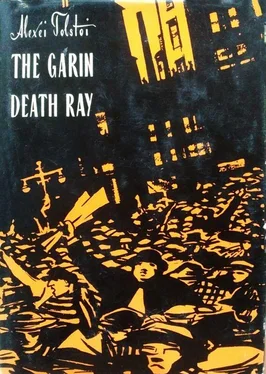
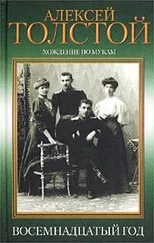

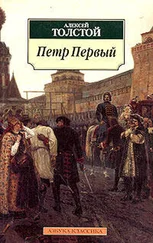
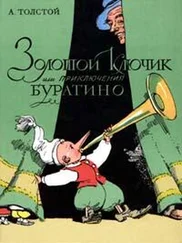
![Алексей Николаевич Толстой - Хождение по мукам [litres]](/books/26263/aleksej-nikolaevich-tolstoj-hozhdenie-po-mukam-litr-thumb.webp)
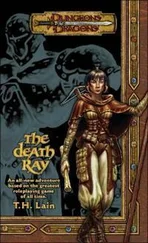

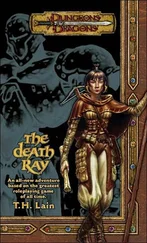


![Алексей Николаевич Толстой - Гиперболоид инженера Гарина. Аэлита [Художник Г. Зубковский]](/books/423486/aleksej-nikolaevich-tolstoj-giperboloid-inzhenera-ga-thumb.webp)
